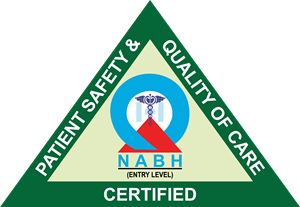Patients and their families often struggle to understand the best treatment options for heart valve diseases. When it comes to valve replacement, there are typically two primary options: Traditional Surgical Valve Replacement & the newer Transcatheter Aortic Valve Implantation (TAVI). Both procedures aim to restore normal heart function by replacing a diseased valve, but each has its own set of advantages and considerations. Let’s take a detailed look at both methods to help you understand which might be better for you or your loved ones.
Jinkushal Cardiac Care & Superspeciality hospital
Surgical Valve Replacement vs. TAVI
- November 26, 2024
- Posted by: Jinkushal Cardiac Care Hospital
- Category: Cardiology, Uncategorized

SURGICAL VALVE REPLACEMENT vs. TAVI, WHICH OPTION IS RIGHT FOR YOU?
What is Surgical Valve Replacement?
Surgical valve replacement, often called open heart surgery, has been the gold standard treatment for severe valve diseases for decades. During this procedure, a surgeon removes the damaged valve and replaces it with either a mechanical valve or a biological (tissue) valve. The procedure typically involves:
- General Anesthesia: The patient is fully asleep and pain-free.
- Sternotomy: A large incision is made along the chest to expose the heart.
- Heart-Lung Machine: This machine temporarily takes over the function of the heart and lungs during surgery.
- Valve Replacement: The surgeon carefully removes the damaged valve and replaces it with a new one.
The procedure is highly effective, with excellent long-term outcomes in the right patients. However, it is a major surgery that comes with certain risks and a longer recovery period.
What is TAVI?
Transcatheter Aortic Valve Implantation (TAVI) is a less invasive procedure that allows doctors to replace a damaged valve without needing to open the chest. Instead, TAVI uses a catheter (a thin tube) that is inserted through the groin or, in some cases, through the chest wall. This procedure is done while the patient is under local anaesthesia or mild sedation.
- Smaller Incision: TAVI avoids the need for a large chest incision, as the catheter is inserted through a blood vessel.
- Faster Recovery: Because it is less invasive, recovery from TAVI is typically much quicker compared to open-heart surgery.
- No Heart-Lung Machine: Unlike surgical valve replacement, TAVI does not require a heart-lung machine, reducing some of the associated risks.
TAVI has revolutionized the treatment of aortic valve diseases, especially for elderly patients or those who are considered high-risk for traditional surgery. In fact it is now being studied widely in young asymptomatic patients also.
When Is Surgical Valve Replacement Preferred?
Surgical valve replacement is still the preferred choice for many patients, particularly for:
- Younger, Healthier Patients: If the patient is younger and in good overall health, surgical valve replacement is often recommended due to its long-term durability. Mechanical valves, for instance, can last for decades and require only minor lifestyle adjustments, such as lifelong blood thinners to prevent clotting.
- Patients With Multiple Valve Issues: In cases where multiple valves are involved or there are other complex cardiac conditions, open-heart surgery might be necessary to ensure the best possible outcome.
- Long-Term Durability: Biological valves used in TAVI may wear out over time, typically within 10-15 years, whereas mechanical valves can last much longer.
When Is TAVI a Better Option?
TAVI is generally recommended for patients who are at high risk for traditional surgery, particularly those who are elderly or have other serious conditions which make them high risk for surgery. Some reasons to consider TAVI include:
- Elderly Patients Or High-Risk Candidates: TAVI is ideal for patients who are not good candidates for open-heart surgery due to advanced age, frailty, or comorbidities like kidney disease, lung disease, or prior heart surgeries.
- Less Invasive Approach: For patients who are hesitant about the trauma of open surgery, TAVI provides a less invasive option with a quicker recovery time and fewer complications.
- Faster Recovery: TAVI allows patients to recover quickly, often with a hospital stay of just 1-3 days compared to weeks for open-heart surgery.
TAVI rarely requires blood transfusions which is usually necessary in open heart surgery.
Which One is Better for You?
The answer to this question depends largely on your specific condition, age, overall health, and preferences. While surgical valve replacement offers long-term durability and is ideal for younger, healthier patients, TAVI has proven to be a game-changer for patients who are elderly or have significant health issues that make traditional surgery risky.
For many elderly patients with severe aortic stenosis, TAVI has become the procedure of choice due to its minimal invasiveness and quick recovery. However, younger patients or those in better health may still be best served by traditional surgery.
Both Surgical Valve Replacement & TAVI are excellent treatment options for patients with damaged heart valves. The choice between them should be made in consultation with a skilled cardiologist and heart surgeon, who will consider your unique health factors. At Jinkushal Cardiac Care & Superspeciality Hospital, we specialize in helping patients make informed decisions about their heart health. Our heart team has experience of more than 2000 Valve Replacements. Whether through traditional surgery or the minimally invasive TAVI procedure in Thane , we are committed to providing you with the best care possible.

